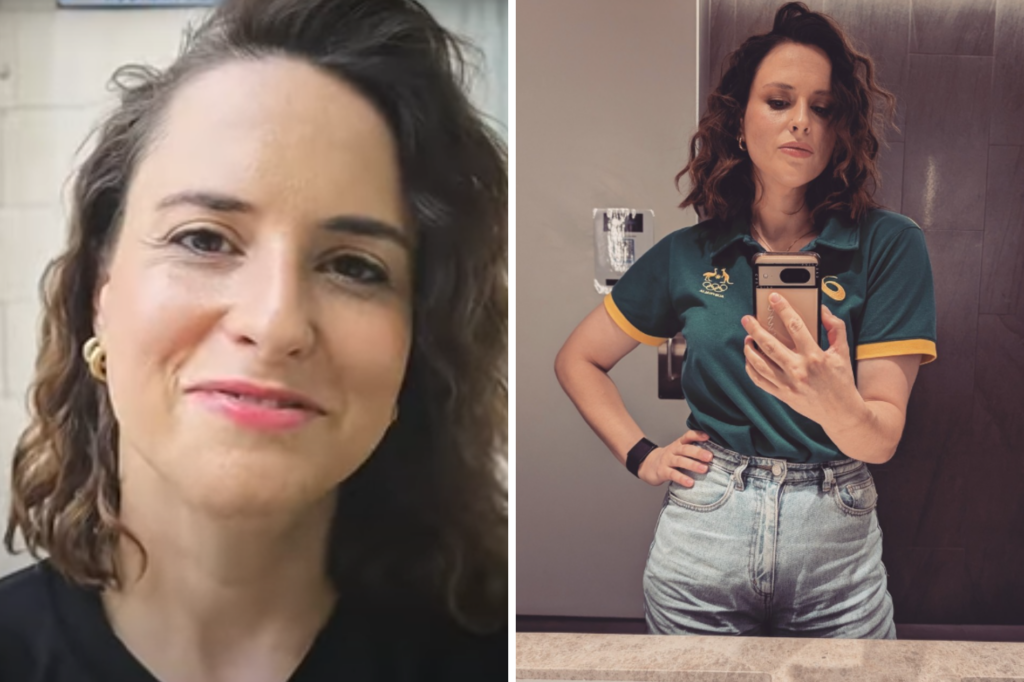Following days of relentless media scrutiny, Australian break dancer Rachael ‘Raygun’ Gunn has spoken out through Instagram about the devastating ordeal she’s experienced and an open door of “hate” she could never have anticipated.
Since first competing at the Paris Olympics in breakdancing last weekend– a sport which also made its seemingly one-time debut at the Games, 36-year-old Raygun has been making headlines for her hilarious but far from impressive performance. She was defeated in all three rounds, failing to secure a single vote from any of the judges.
It started with viral memes and a general tone of “what an Aussie legend”, but in days since, there has been growing frustration around the fact that Raygun, a white, privileged academic from Sydney, may have usurped a far more deserving female breakdancer from the opportunity of a lifetime.
And in my eyes, this is reasonable to question.
Breakdancing originated in the South Bronx, New York City, during the 1970s. It emerged as a key element of hip-hop culture, alongside DJing, rapping and graffiti. The sport’s roots are deeply connected to the struggles and creative expression of marginalised, predominantly African American and Latino youth in economically disadvantaged neighbourhoods.
And while the sport has evolved significantly since its origins, gaining global popularity, it is still fact that it continues to provide a voice and platform for marginalised communities, and these communities often face challenges in gaining visibility and recognition.
The AOC said Gunn was selected to the Australian Olympic Team through a “transparent and independent qualification event and nomination process”, but over the past week we’ve learned that this might not paint the full picture.
While claims that Raygun’s husband was involved as a judge in her selection appear patently false, there is the fair argument about the one Oceania qualifier running in Sydney and excluding B-girls from other cities and regional areas who could well have qualified but could not afford to travel for the tryouts.
Lucas Marie, a breaker who has competed, performed, taught and judged breaking competitions over the past 25 years and who recently co-authored an article with Gunn agreed this was possible.
“Of course, there’s breakers all over the country that maybe should have been in that event, but they weren’t” he told the ABC.
Others, like Malik Dixon, an African-American living in Australia criticised the governing body which nominated Gunn, suggesting she devalued breaking with her performance.
“Whatever governing body nominated her as Australia’s entrant into the Olympics either did not understand the assignment or didn’t really believe in the integrity or significance of breakdancing, because if they did they would just say, rather than disrespect the culture, we’re just not ready to send an applicant this year.”
Other breakers reported to The Guardian that they felt disappointed with a selection process that was flawed and locked out talent.
“I think there’s a bigger conversation needed here around the system and how it’s being built,” said breaker Catherine Tsang.
While veteran B-girl Leah Clark noted a number of technical factors that precluded many of Australia’s best breakers from trying out, suggesting that the Oceania qualifying event in Sydney in 2023 “was a really quick turnaround”, with little time between the announcement and the event itself.
There was also a convoluted registration process with three different bodies to compete and the requirement to hold a valid passport, which many didn’t have and couldn’t afford to organise.
“There wasn’t even enough B-girls to [fill] the top 16,” she said.
At the end of the day, I don’t believe these errors fall back on Rachael Gunn. She is someone who took a chance, gave it a go and has showed considerable courage in the days since. She has not deserved the level of vitriol levelled against her.
But power structures and systemic biases do need to be scrutinised. Feminism isn’t one dimensional. It needs to be a lens which at all times is intersectional and doesn’t serve to benefit and celebrate a select few who hold privilege already.
Beyond the memes, this experience hopefully highlights to sporting governing bodies the anger that exists and that will boil over when opportunities are taken from those who have fought hard for recognition in a space that was originally theirs.


